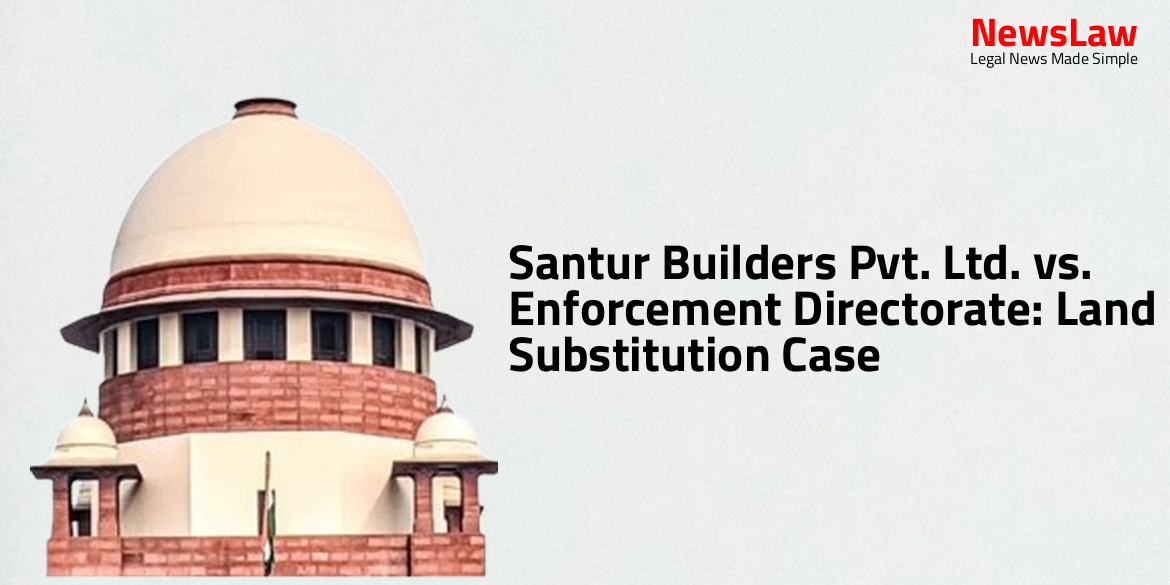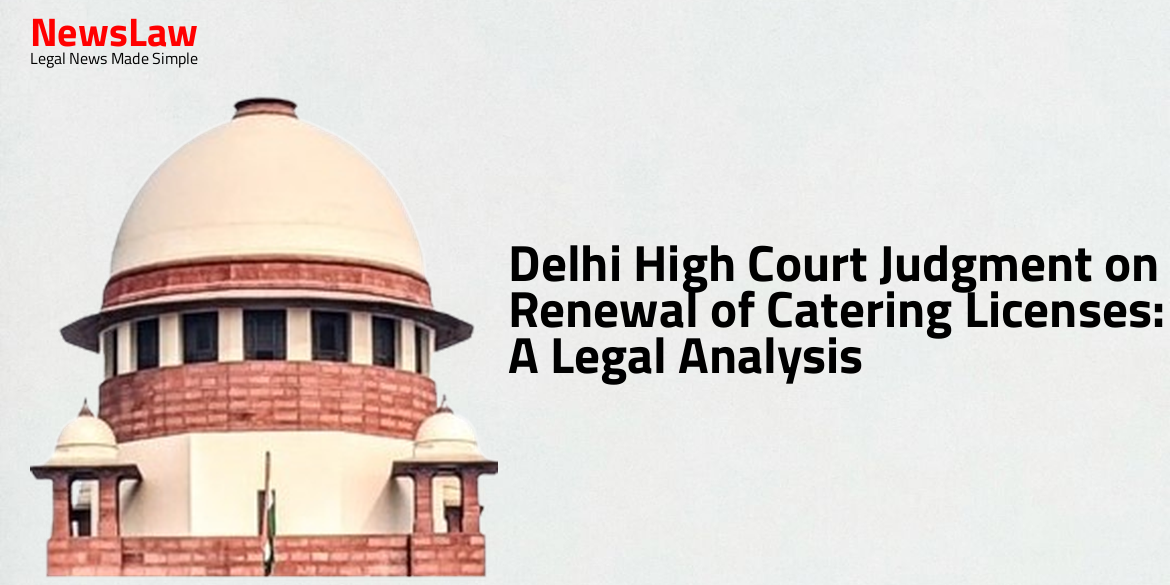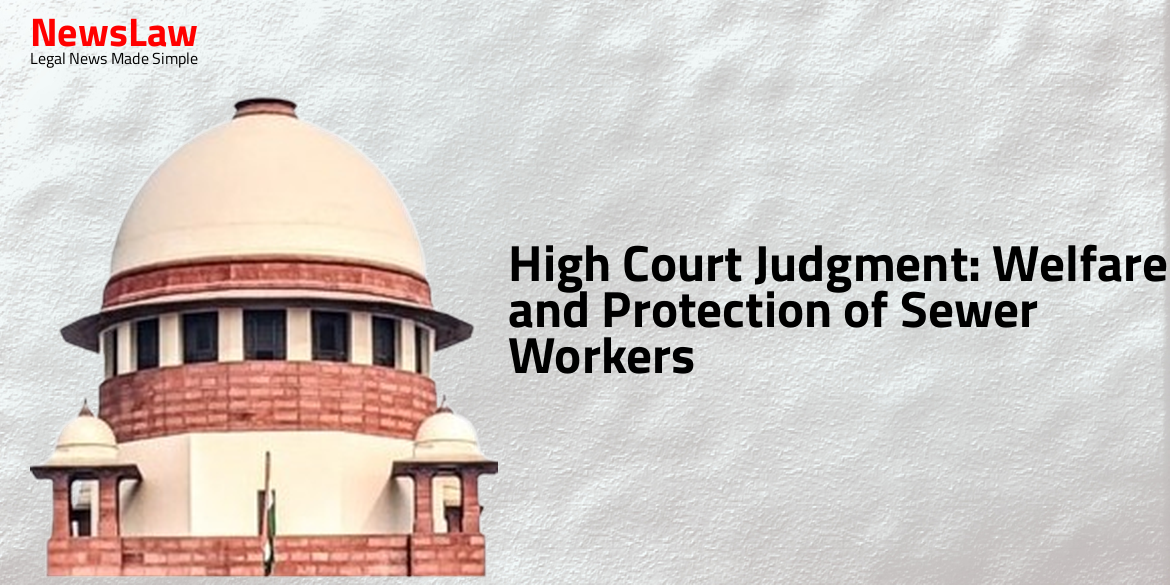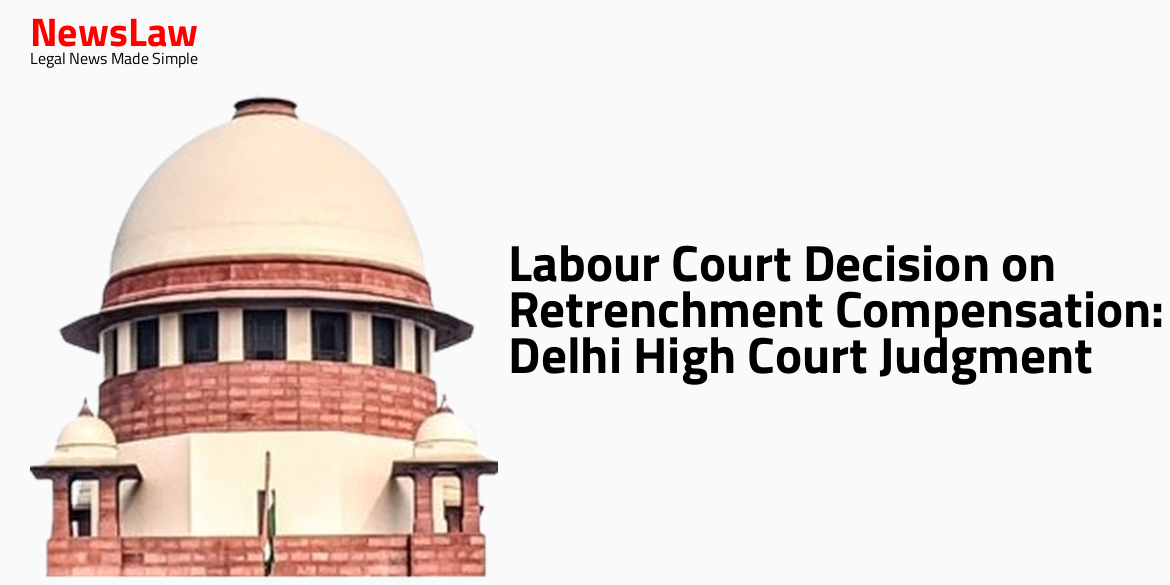In a significant legal battle before the Delhi High Court, the case of land substitution involves Santur Builders Pvt. Ltd. and the Enforcement Directorate. The court is deliberating on the implications of property attachment and the potential replacement with a bank guarantee. Stay informed about this crucial legal dispute unfolding in the capital city courtrooms.
Facts
- Central Bureau of Investigation (CBI) initiated a Preliminary Enquiry and registered an FIR against officials of the Ministry of Coal for alleged corruption in coal block allocations.
- Enforcement Directorate (ED) also registered ECIR under PMLA for investigating money laundering offenses.
- Court in Delhi has jurisdiction to entertain the present petition as the cause of action has arisen there.
- Properties worth Rs. 49.2 crores have been attached due to the alleged proceeds of crime.
- The petitioner filed a Writ Petition seeking substitution of attached land with a bank guarantee.
- The attached properties are ascertained to be linked with the proceeds of crime.
- The Adjudicating Authority confirmed the provisional attachment under PMLA.
- The petitioner faces financial losses and reputational damage due to the attachment.
- The petitioner aims to restart the cement plant with the help of investors.
- The application for property substitution with a bank guarantee is contested by the respondents.
Arguments
- The counsel for the petitioner argued that Rule 5(5) of the Prevention of Money Laundering Rules allows substitution of attached property with fixed deposits but only for jointly owned land.
- The respondent’s counsel countered that Rule 5(5) is specifically for land under joint ownership.
- The petitioner’s counsel cited the Wednesbury Principles and a relevant case to support judicial review of administrative decisions.
- It was argued that attachment proceedings aim to preserve assets for confiscation and prevent accused from benefitting from crime.
- The Adjudicating Authority is empowered similar to a civil court under the Code of Civil Procedure.
- The petitioner insisted on the power of the Authorized Officer to substitute attached property with fixed deposits as per the Rules.
- Details regarding specific properties attached by the respondent were presented by the petitioner’s counsel.
- The petitioner suggested that attached properties can be substituted with ones of equivalent value without causing prejudice to the respondent.
- The respondent’s counsel emphasized that High Courts should not downplay statutory enactments like PMLA.
- Specific details of the attached land were confirmed to have been issued by a Deputy Director of the Enforcement Directorate.
- Respondent 3 argues that the present application is not maintainable in this court due to forum non convenience.
- The petitioner, impugned properties, and Respondent 3 are based in the State of Madhya Pradesh.
- Petitioner’s representation for substitution of attached property was not permitted by the authorized officer.
- Counsel for petitioner argues that no alternate efficacious remedy is available except filing the present petition as Adjudicating Authority and Appellate Tribunal under PMLA lack power to release or substitute the attached property.
- Counsel for Respondent 2/ED puts forward arguments opposing the application.
- Counsel for petitioner argues for substitution of attached property with a bank guarantee linked to proceeds of crime.
- Counsel for Respondent 2/ED argues against the substitution of attached property with another security like a bank guarantee or fixed deposit.
Analysis
- Petitioner No 1 was allotted the Thesgora-B/Rudrapuri coal block jointly with M/s Kamal Sponge Steel & Power Ltd in pursuance of an advertisement by the Ministry of Coal, Government of India.
- The allocation was as per the Joint Venture Agreement dated 03.09.2008.
- The coal block was de-allocated by the Ministry of Coal on 17.02.2014.
- The court noted the difference between ‘proceeds of crime’ and ‘amount equivalent to proceeds of crime’.
- There is a distinction in allowing substitution of attached property based on whether it is ‘proceeds of crime’ or ‘equivalent value’.
- Section 5 of PMLA deals with attachment of properties in money laundering cases.
- The Adjudicating Authority and the Appellate Tribunal do not have the power to release or substitute attached property.
- The Supreme Court has previously ordered for substitution of attached property in various cases.
- A writ petition under Article 226/227 of the Constitution is considered maintainable in the absence of specific power under PMLA.
- The Appellate Tribunal may have the authority to exercise the power of substitution under Section 35(1) of PMLA.
- Rule 5(5) of the Prevention of Money Laundering Rules allows for acceptance of alternative equivalent value of attached property.
- The Division Bench of the High Court directed parties to provide bank guarantees to protect interests in the case of attached property.
- The property attached was found to be acquired from the proceeds of the crime, as per the impugned orders.
- The Telangana High Court observed that there is no specific provision under PMLA for substitution of property provisionally attached by the Enforcement Directorate.
- The court noted that there is no provision preventing the exercise of such power by the Appellate Tribunal under Section 35(1) of PMLA.
- In a specific case, the petitioner expressed readiness to deposit Rs. 3,00,00,000/- in a fixed deposit in a nationalized bank with a lien in favor of the Enforcement Directorate.
- Different High Courts, including Delhi, have allowed release of attached immovable property upon deposition of an equivalent amount through fixed deposit.
- The Supreme Court in a related case allowed substitution of attached property by fixed deposit without prejudice to the rights of the parties in the proceedings before the Appellate Authority.
- In another instance, the Supreme Court directed the lifting of property attachment upon submission of a fixed deposit receipt to the CBI and the Enforcement Directorate.
- The Appellate Tribunal in a referred case highlighted its power under Section 35(1) of PMLA to regulate its own procedure.
- A Division Bench of the High Court of Telangana observed that there is no provision in PMLA or its Rules for the replacement of attached immovable property with fixed deposit.
- Sh. P.V. Yogeshwaran’s arguments considered but not providing legal assistance to the respondents
- Applicant’s claim legally justified and supported by Supreme Court and High Court decisions
- Various orders by Supreme Court and High Courts, including Delhi High Court, support allowing the present application
- Special Leave Petitions declined and disposed of based on factual position
- Petitioner does not dispute the value of the attached property mentioned in the impugned orders
Decision
- The immoveable property measuring 18.928 hectares can be attached as an alternative arrangement
- The property includes 26.76 hectares valued at Rs. 4,68,60,710
- Santur Builders Pvt. Ltd. to furnish a bank guarantee equivalent to the total value within 15 days
- The bank guarantee to be periodically renewed until the trial conclusion
- If the respondents win the case, the bank guarantee can be encashed by respondent no. 2
- Undertaking required from Santur Builders Pvt. Ltd. not to create any interest on the bank guarantee
Case Title: REVATI CEMENTS PVT LTD & ANR Vs. UNION OF INDIA & ORS (2024:DHC:4405)
Case Number: CM APPL.-6943/2022



